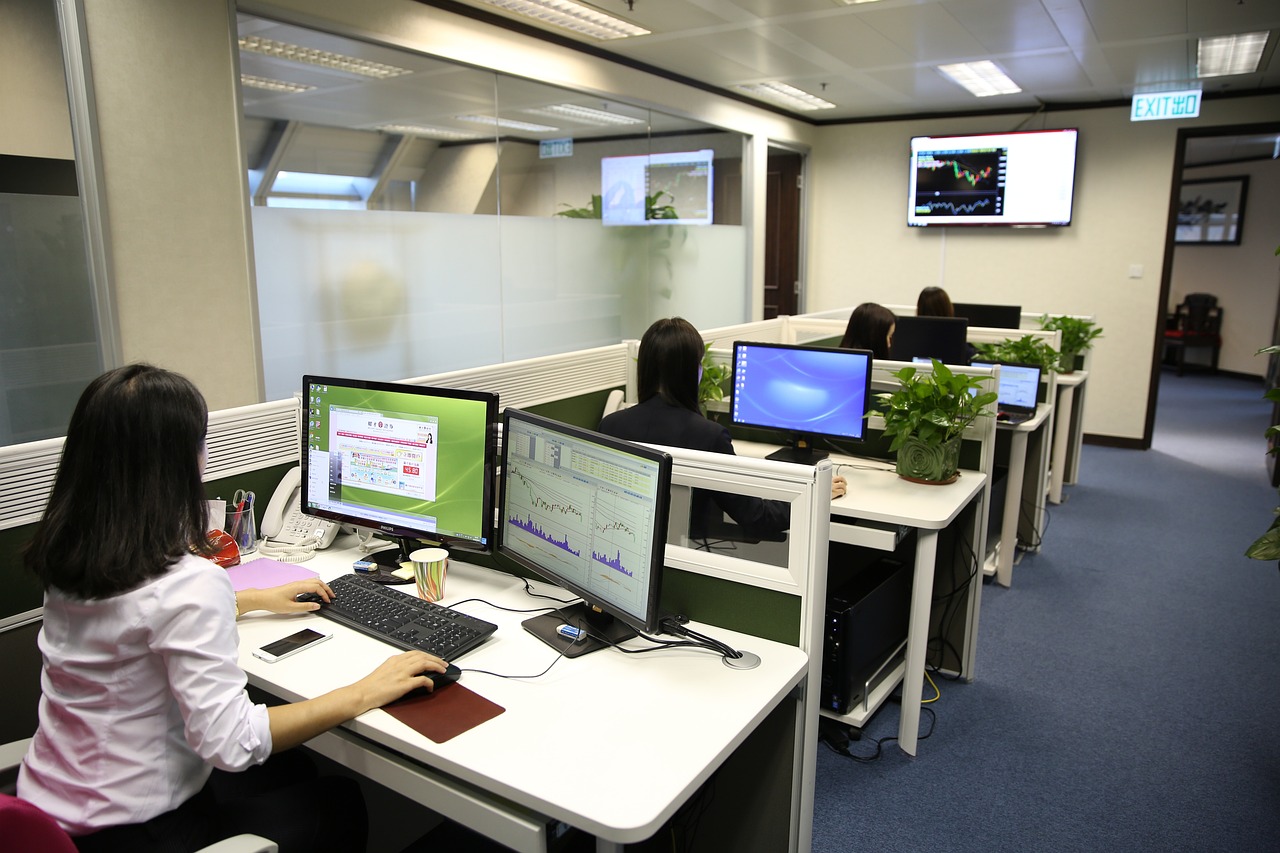
Charting the New Frontier: Securing Cyber Realms, Transforming Anxiety Care, and Revolutionizing Industry
As our world increasingly intertwines with digital landscapes, we’re exploring uncharted territories that redefine security paradigms, mental health, and industrial practices. Understanding and innovating in these realms is crucial for a progressive future.
# Securing Cyber Realms
In an age where data breaches, ransomware, and phishing attacks have become commonplace, securing cyber realms has never been more critical. Cybersecurity has evolved from a niche IT concern to a fundamental pillar of operational stability across all sectors.
Today’s cyber threats are not just sophisticated but also diverse, targeting everything from individual identities to national infrastructures. This evolution mandates not only advanced technology but also an informed public to fortify digital spaces. Companies are now leveraging AI and machine learning to predict and counteract cyber threats in real-time. These technologies can identify unusual patterns of behavior, anomalous data access requests, and even simulate potential vulnerabilities to patch them proactively. Moreover, multilayered security frameworks incorporating both hardware and software solutions are becoming standard practices.
However, technology alone cannot suffice. Cyber hygiene — regular updates, strong passwords, and cautious internet behaviors — contributes significantly to personal and organizational security. Cybersecurity training programs are increasingly becoming part of organizational routines, aiming to build a culture of security awareness that complements technological measures. It’s also imperative that policymakers stay ahead, ensuring laws and regulations keep pace with the rapid changes in technology. Global cooperation is essential in this regard, as cyber threats transcend national boundaries and require coordinated defense mechanisms. Ultimately, the goal is not just to build impenetrable systems but to create resilient ones that can adapt and recover swiftly from attacks.
# Transforming Anxiety Care
The digital age has not only brought innovation but also a new wave of mental health challenges, particularly anxiety disorders. The pressures of constant connectivity, social media scrutiny, and information overload contribute significantly to modern anxiety levels. Fortunately, technology also provides innovative solutions to tackle these mental health issues. Mobile applications for mental health have emerged as a viable and accessible method for managing anxiety. These apps offer a range of services, from mood tracking and cognitive-behavioral exercises to mindfulness practices and teletherapy sessions with certified professionals. The convenience of 24/7 availability reduces barriers to accessing mental health support, making it easier for individuals to seek help.
Teletherapy, in particular, has shown immense promise, especially in a world reshaped by the COVID-19 pandemic. The flexibility of virtual sessions reduces logistical challenges, such as travel and time constraints, thereby increasing adherence and continuity in care. Furthermore, the anonymity provided by online platforms can encourage individuals who might be hesitant to seek face-to-face therapy. Research-backed frameworks integrated into these digital tools ensure that users receive quality care. However, it’s crucial that these technologies are used in conjunction with, rather than as a replacement for, traditional therapeutic methods.
The interplay between technology and mental health care extends to new frontiers like Virtual Reality (VR). VR techniques are being employed to simulate stressful situations in a controlled environment, allowing individuals to build coping mechanisms and gradually desensitize their anxiety triggers. These immersive experiences have shown positive outcomes in clinical settings, representing the next frontier in anxiety care. As we continue to explore these possibilities, ethical considerations and rigorous testing are essential to ensure these advanced methods are both safe and effective.
# Revolutionizing Industry
Industries worldwide are on the brink of a revolution fueled by the Fourth Industrial Revolution, characterized by the fusion of physical, digital, and biological spheres. At the epicenter of this transformation are technologies like the Internet of Things (IoT), artificial intelligence (AI), and big data analytics, which are redefining manufacturing, supply chains, and consumer experiences. Smart factories equipped with IoT sensors and AI-driven robots are making production lines more efficient and adaptable. These advancements allow for predictive maintenance, reducing downtime and improving the lifespan of machinery. By collecting and analyzing data in real-time, companies can fine-tune operations, cut costs, and increase productivity.
Moreover, the digitization of supply chains offers unprecedented transparency and efficiency. Blockchain technology, known primarily for its role in cryptocurrencies, is now being applied to track and verify the authenticity and origin of products in real-time. This transparency not only enhances consumer trust but also helps in adhering to stringent regulatory requirements. AI-driven analytics provide actionable insights, allowing for more precise demand forecasting and inventory management, thereby minimizing waste and optimizing resource use. Industries such as healthcare, automotive, and retail are already witnessing profound changes due to these integrated systems.
The revolution extends to the very nature of work itself. Remote working and freelance platforms are reshaping traditional employment models, providing flexibility and new opportunities for both employers and employees. This shift is being bolstered by advanced communication tools and collaborative software, enabling efficient and effective work processes regardless of geographical limitations. However, with these advancements come challenges, including the need for upskilling the current workforce to meet new technological demands and addressing concerns related to cybersecurity and data privacy. Balancing these factors will be crucial for successfully navigating the industrial revolution of our time.
# Elevating Digital Education
The transformation of education through digital technology is arguably one of the most significant changes of the 21st century. Online learning platforms have democratized access to knowledge, breaking down geographical and socioeconomic barriers that once hindered education. Platforms like Khan Academy, Coursera, and edX offer courses from esteemed institutions to anyone with an internet connection. This democratization extends to K-12 education as well, where digital tools provide interactive and personalized learning experiences. Adaptive learning technology uses algorithms to customize educational content based on the learner’s pace and comprehension, resulting in a more efficient and tailored educational journey.
Another frontier in digital education is the use of Augmented Reality (AR) and Virtual Reality (VR). These immersive technologies make complex subjects more accessible and engaging. Imagine a history lesson where students can “walk” through ancient Rome or a biology class that allows them to explore the human body at a cellular level. Such experiences can significantly enhance comprehension and retention rates. Furthermore, these technologies can bridge the gap between theoretical knowledge and practical application, a challenge often faced in traditional educational settings.
Digital education also promotes lifelong learning. As industries evolve rapidly, continuous education becomes essential. Micro-credentialing, where learners can earn certificates in specific skills in a short time, is gaining traction. These credentials are highly valued in the job market, offering professionals a way to stay relevant and competitive. However, the digital transformation of education is not without its challenges. Ensuring equal access to technology, maintaining quality standards, and protecting student data are critical issues that need addressing. As we venture deeper into this new educational landscape, the focus should remain on delivering inclusive, engaging, and high-quality learning experiences.
# Ethical Implications of Technological Advances
As we navigate through rapid technological advancements, ethical considerations are paramount. The benefits of innovations like AI, IoT, and digital healthcare are immense, but they come with significant ethical dilemmas that must be addressed. One major concern is data privacy. With the integration of IoT devices and AI analytics in various sectors, vast amounts of personal data are collected, processed, and stored. Protecting this data from breaches and misuse is critical, as is ensuring that individuals have control over their information. Regulations like GDPR in Europe set the groundwork for data protection, but continuous adaptation is necessary to keep up with technological evolutions.
Another ethical issue is the potential for increased surveillance. Advanced technologies enable unprecedented levels of monitoring, which, while beneficial in areas like security and healthcare, can also be intrusive. The balance between leveraging technology for societal benefits and upholding individual privacy rights is delicate and requires ongoing scrutiny. Additionally, biases embedded in AI algorithms can lead to unfair treatment and discrimination. These biases often stem from the data used to train AI systems, which can reflect existing societal inequalities. Addressing this requires a concerted effort to develop and implement fair and unbiased data sets and algorithms.
The ethical implications also extend to the workplace. The rise of automation and AI-driven processes can lead to job displacement, raising concerns about the future of work. While these technologies can create new types of jobs, they also require different skill sets, necessitating robust upskilling and reskilling initiatives to prepare the workforce for these changes. Additionally, ethical considerations in digital education involve ensuring that all students, regardless of their background, have access to quality digital resources. As we continue to innovate, integrating ethical considerations into the development and deployment of new technologies is essential to create a fair, inclusive, and trustworthy digital future.



